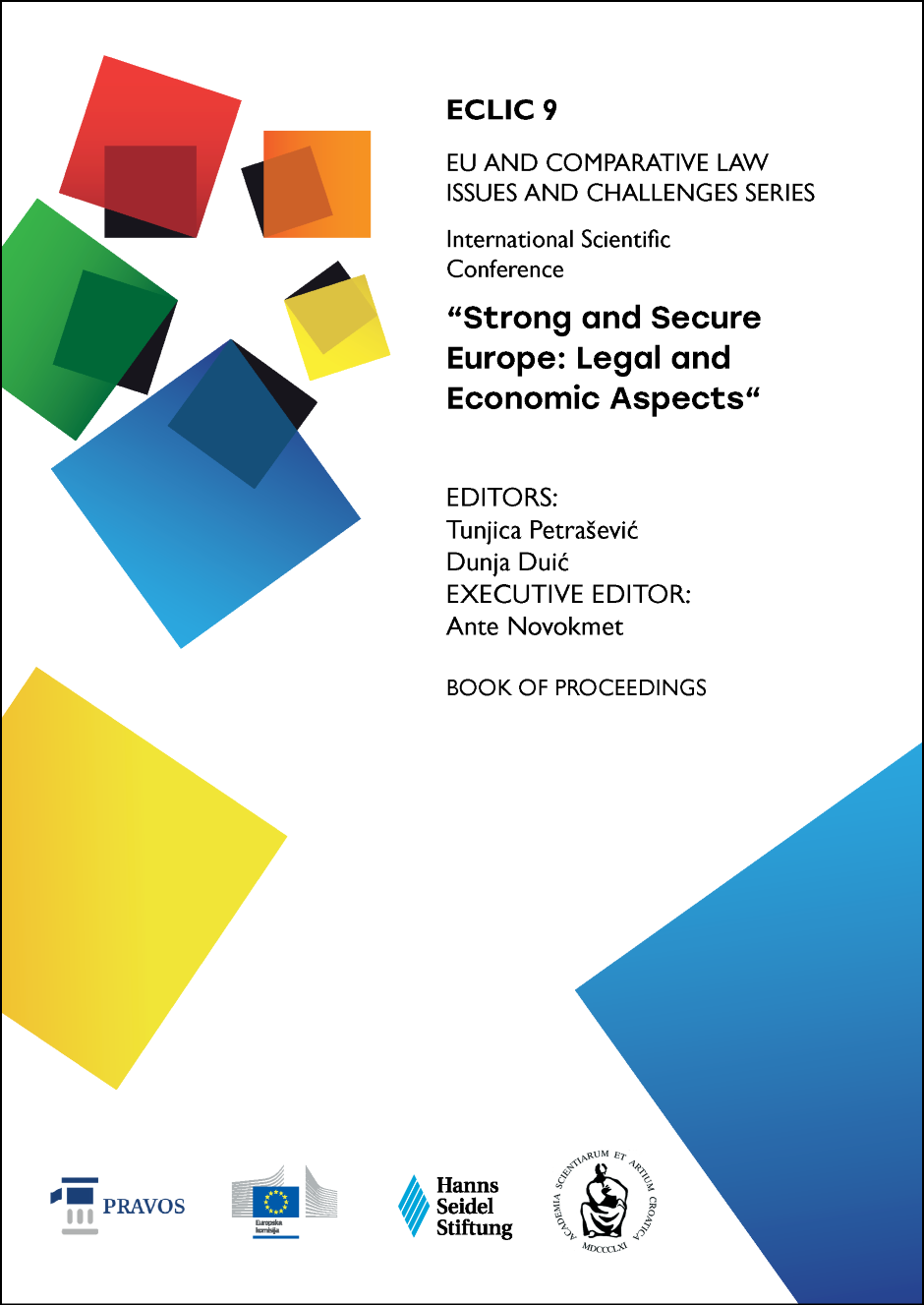FREEDOM OF EXPRESSION ON THE INTERNET VS. DIGITAL SERVICES ACT
CHOSEN ASPECTS
DOI:
https://doi.org/10.25234/eclic/38095Abstract
With the development of information technologies and the digitalization of every area of our lives, we are increasingly encountering violations of individuals’ digital rights, which can be classified among fundamental human rights and freedoms. Digital rights are not sufficiently protected on the internet. The use of information technologies also reveals vulnerable areas of our digital space. These vulnerable areas mainly include the field of e-commerce, online shopping, and active or passive participation on social networks, where massive data collection from individuals operating in the online space occurs. This raises questions regarding the adherence to ethical principles in the online environment. However, the issue is not limited to the protection of individuals’ personal data and their privacy, but also extends to the overall activities of various entities operating online. It is evident that internet platforms are gaining in power and need to be legally regulated. At the level of the European Union, a regulation—the Digital Services Act (hereinafter referred to as DSA)—has therefore been adopted with the aim of both regulating online platforms and protecting users themselves. The aim of this article is to analyze digital rights and their observance on the internet. It is necessary to ask whether these digital rights are adequately protected by current legislation. In this context, the author will focus on the controversial issue of the relationship between freedom of expression and the principles established in the DSA. For this purpose, specific provisions of the DSA will be analyzed, in particular Articles 34 and 35, which introduce the obligation to identify and mitigate systemic risks by very large online platforms (VLOPs) and very large online search engines (VLOSEs). To achieve the stated goals, standard scientific research methods will be used—primarily those typical of the social sciences, even though the topic overlaps with the field of technology. These methods will be specifically applied in processing the collected data, evaluating them, and formulating conclusions. To examine the raised questions and achieve the defined goals, we will primarily use formal-logical methods, comparative methods, and methods of historical, economic, and legal analysis. In addition, methods of induction, deduction, synthesis, interpretation of legal norms, and abstraction will also be employed.
Downloads
Published
Issue
Section
License
Copyright (c) 2025 Diana Treščáková

This work is licensed under a Creative Commons Attribution-NonCommercial 4.0 International License.
Authors retain the copyright on the papers published in the Journal, but grant the right of first publication to the Journal. Papers accepted for publication or already published in ECLIC of the Faculty of Law in Osijek may be published by the author(s) in other publications only with proper notice of its previous publication in ECLIC.


